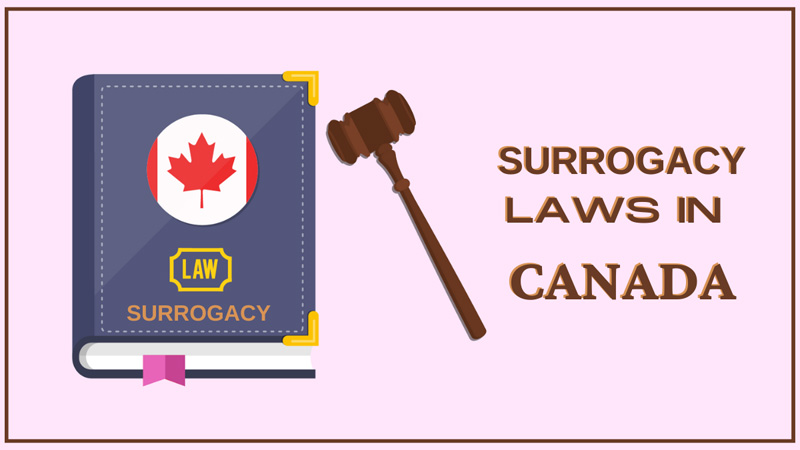Is surrogacy legal in Canada?
The surrogacy laws in Canada are quite flexible in comparison to other countries around the world. So, you can carry on with your pursuit of having a child via surrogacy regardless of your sex, religion, caste, or creed.
That said, there are certain regulations that one needs to abide by during the same process. So, if you are not a legal expert in the ART domain, simply refer to the information below or connect with our coordinators here at the surrogacy agency Kenya.
Detailed guide regarding surrogacy laws in Canada
One really needs to take a deep dive into the laws for surrogacy in Canada before getting started with their surrogacy journey. Moreover, is surrogacy legal in Canada is a question that concerns most of the child-seeking parents around.
Well, to put it simply, the federal Assisted Human Reproduction Act governs and legalizes surrogacy in Canada (AHRA). However, some provincial laws, like those that specify who is legally recognized as a child’s parent, are also very significant.
Legal considerations regarding the surrogate mother in Canada
 Every surrogacy procedure in Canada, according to the ARHA, must be “altruistic.” Moreover, the Canadian surrogate mother is consequently unable to profit from her actions in the same way.
Every surrogacy procedure in Canada, according to the ARHA, must be “altruistic.” Moreover, the Canadian surrogate mother is consequently unable to profit from her actions in the same way.
Surrogates are also not allowed to receive a salary in Canada; instead, they can only be reimbursed or paid a small number of expenses.
On the other side, all authorized expenses of the surrogate must be supported by receipts, and they might also need formal medical necessity certification.
Besides, this also covers any products or services that a doctor or midwife recommends in writing, as well as maternity wear, as well as travel costs for medical appointments, legal fees, counselling fees, and any products or services.
Legal considerations regarding the surrogacy agreement
Canada’s surrogacy law stipulates that before a surrogacy program can start, there must be a surrogacy agreement. In accordance with laws for surrogacy in Canada, the surrogate must also obtain independent legal counsel prior to signing the contract.
Moreover, the surrogate typically hires her own attorney (paid for by the intended parents) to review the contract signed along with the intended parents.
Contrarily, surrogacy agreements cover every aspect of the procedure, including the period before, during, and after the pregnancy. Besides, It will outline the parties’ objectives for significant issues like the child’s parental rights, whether the surrogate will interact with the child, whether a pregnancy will be terminated, how the parties will pay for qualifying expenses, etc.
Not all provisions in a surrogacy agreement are physically enforceable because the surrogate ultimately decides whether to terminate a pregnancy, where to deliver the child, etc. However, certain provisions of surrogacy laws in Canada must be followed in order to prevent further disputes.
Legal considerations regarding childbirth
 The province where the child is born, whether the intended parents are related to the child genetically, and whether the surrogate is related to the child genetically will all have an impact on the process for the intended parents to have their parental rights recognized.
The province where the child is born, whether the intended parents are related to the child genetically, and whether the surrogate is related to the child genetically will all have an impact on the process for the intended parents to have their parental rights recognized.
Besides, the intended parents will be listed as the child’s legal parents in accordance with Canadian surrogacy law.
This is why it is advised that you consult a lawyer before selecting a surrogate mother in Canada because the surrogacy laws in different provinces may differ significantly.
Moreover, Canada is known for having “free” health care; if you are not from Canada, you should speak with a local attorney to learn more about the procedures for returning there as your child’s legal parents.
Intentional parents who are from outside of Canada must have medical insurance for a child born to a surrogate after birth. That said, prospective parents should make sure they have done their research and have health insurance in place for the child in order to be prepared for any medical costs associated with the care of the child.
In Canada, there are federal and provincial laws that apply before, during, and after the delivery. The child’s postnatal care may no longer be funded by the public health care system, but the surrogate and the infant will still receive free prenatal and postnatal care.
That said, having the right legal counsel is essential for a successful surrogacy journey.
So, it is quite necessary for you to consult a legal professional that got the required information and knowledge to help you during the process.
Choose only the best!
A team of qualified legal professionals with years of experience in ART law can easily be found here at the Surrogacy agency in Canada. As a result, you can continue on your surrogacy journey without being concerned about any legal challenges or complications
For more information, get in touch with one of our surrogacy coordinators today!


No Comments